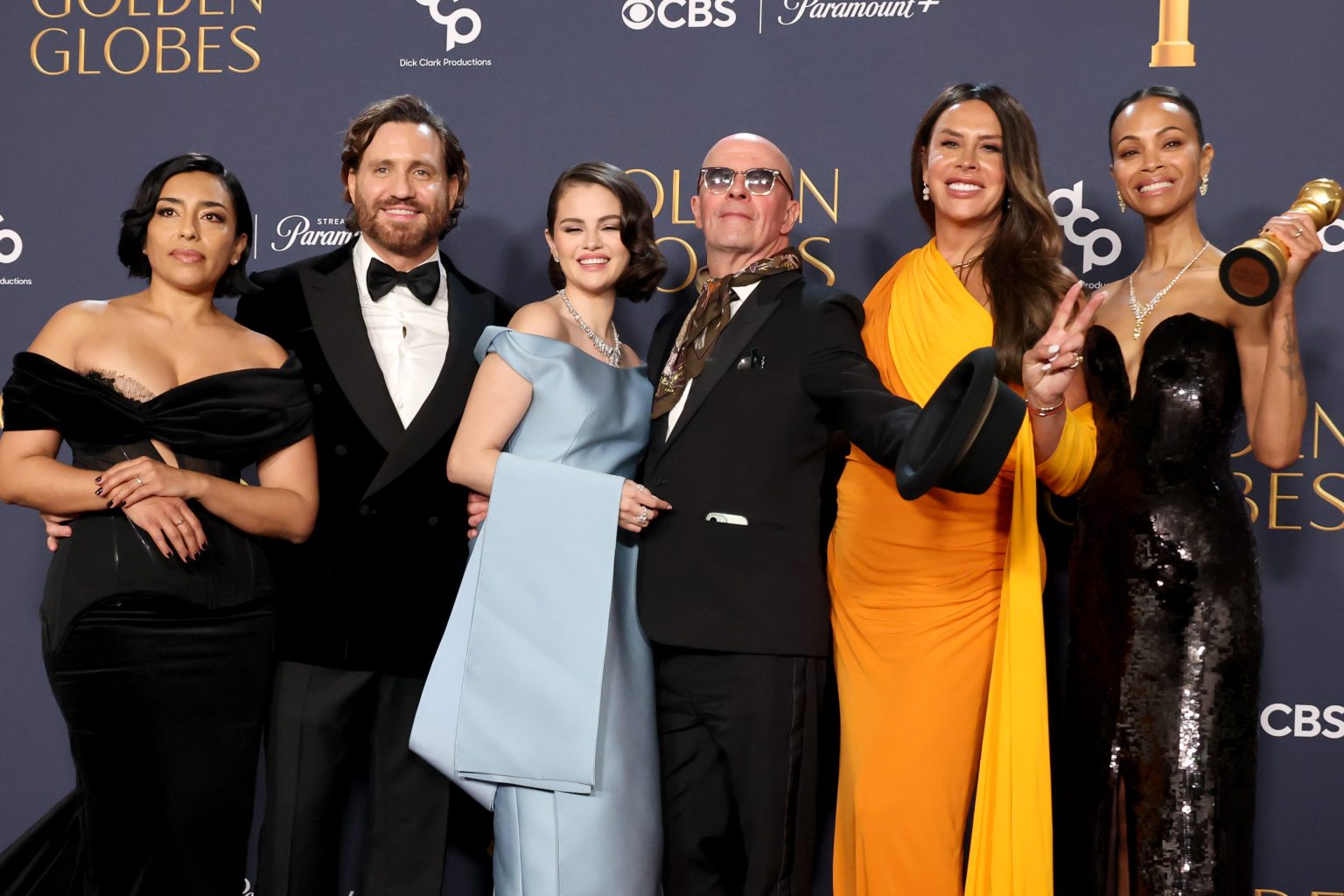“Emilia Pérez,” a Netflix musical centered on a Mexican cartel leader’s transition to womanhood, garnered significant attention at the 82nd Golden Globe Awards, securing four wins, including Best Musical or Comedy. Directed by Jacques Audiard and starring Karla Sofía Gascón, Selena Gomez, and Zoe Saldaña, the film, while praised by critics, ignited a firestorm of controversy across Latin America. The central point of contention revolves around the film’s perceived lack of cultural authenticity and its perpetuation of harmful stereotypes about the region, raising concerns about Hollywood’s long-standing history of misrepresentation. This stark contrast between international acclaim and regional rejection has placed the film in a precarious position as awards season progresses.
The controversy surrounding “Emilia Pérez” highlights the complex interplay between artistic expression, cultural representation, and audience reception. While the film’s premise, exploring themes of gender identity and transformation within the backdrop of the Mexican drug trade, holds potential for nuanced storytelling, the execution, according to many Latin American viewers, fell short. The film’s reliance on stereotypical portrayals, coupled with the predominantly non-Mexican cast, fueled accusations of cultural appropriation and insensitivity. This disconnect between the creators’ intentions and the audience’s interpretation underscores the importance of thorough research, cultural sensitivity, and meaningful collaboration with communities being represented in filmmaking.
The backlash against “Emilia Pérez” gained momentum online, with social media platforms serving as a primary space for expressing discontent. Latin American users on X (formerly Twitter) launched a coordinated campaign, denouncing the film’s Golden Globe victories and urging the Academy to reconsider its potential for Oscar nominations. Critics argued that the film trivialized the complex realities of the drug trade and its devastating impact on Mexico, reducing a serious humanitarian crisis to a musical spectacle. Furthermore, the lack of Mexican representation in the cast and crew was seen as a glaring oversight, exacerbating the perception of cultural appropriation and disrespect.
Director Jacques Audiard’s response to the criticism further inflamed the situation. His reliance on Karla Sofía Gascón, the Spanish transgender lead, as his primary source of cultural insight was perceived as dismissive of the need for broader research and engagement with Mexican perspectives. This, combined with casting director Carla Hool’s controversial statement about the inadequacy of Mexican talent, added fuel to the fire. The perceived arrogance and lack of cultural humility from the film’s creators deepened the rift between the production and the very community it purported to represent.
The controversy extended beyond online discussions and impacted the film’s reception at the Morelia Film Festival in Mexico. Audience members voiced their frustrations directly, criticizing the film’s superficial portrayal of Mexican culture and its failure to capture the nuances of the lived experiences of those affected by the drug trade. This direct feedback from the target audience further underscored the film’s shortcomings in terms of authenticity and respectful representation. The disconnect between the critical acclaim received internationally and the rejection experienced within Mexico highlighted the crucial role of cultural sensitivity and the importance of prioritizing the perspectives of the communities being depicted.
As “Emilia Pérez” enters the Oscar race, the controversy surrounding its cultural representation casts a long shadow over its potential success. While the Golden Globe wins boosted its visibility and award prospects, the persistent backlash in Latin America raises important questions about the film’s overall impact. The debate surrounding “Emilia Pérez” serves as a cautionary tale about the importance of cultural sensitivity and responsible storytelling in an increasingly globalized film industry. It underscores the need for filmmakers to engage in meaningful dialogue with the communities they represent, prioritizing authenticity and respect over stereotypical portrayals. The film’s journey through awards season will undoubtedly be marked by this ongoing conversation, highlighting the complexities of cultural representation and the power of audience voices in shaping the narrative surrounding a film’s legacy.

